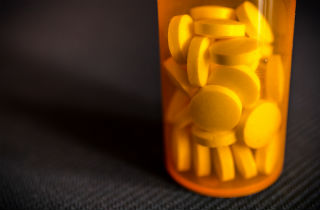No. You cannot get high on trazodone.
The FDA has no record of reported cases of euphoria after taking trazodone. (Similarly, there is no such thing as an ibuprofen high.) But trazodone does act on the central nervous system. Learn more about trazodone effects here. Then, leave us your comments, feedback or and ask your questions about trazodone at the end!
Trazodone chemistry and use
Trazodone is usually prescribed to treat depression. But trazodone can also be used to treat insomnia and schizophrenia or to control abnormal, uncontrollable movements caused by other medications. Chemically, trazodone is an antidepressant chemically distinct from other antidepressants. Trazodone is in a class of medications called serotonin modulators. Trazodone works by increasing the amount of serotonin in the brain, which helps us maintain mental balance.
Trazodone and central nervous system effects
Trazodone can cause central nervous system depressant effects, but not brain wiring addiction changes, like other prescription drugs.. But scientists do not yet know exactly how trazodone acts on the brain and body. What we do know is that trazodone may make you drowsy and affect your judgment. If trazodone impairs your ability to perform activities requiring mental alertness or physical coordination (Ex. operating machinery, driving a vehicle), you should not drive or operate machinery while taking it.
Adverse nervous system effects usually occur during the first few weeks after you start taking trazodone. The most frequent adverse effect associated with trazodone therapy is drowsiness. Other less frequent adverse nervous system effects of trazodone include:
- anger
- confusion
- decreased concentration
- delusions
- disorientation
- dizziness
- drowsiness
- excitement
- fatigue
- fullness of the head
- hallucinations
- headache
- heaviness of the head
- hostility
- insomnia
- impaired memory
- impaired speech
- lack of coordination
- lightheadedness
- malaise
- nervousness
- weakness
Mixing trazodone with other substances
Trazodone may enhance your body’s response to alcohol, barbiturates, or other central nervous system depressants. Trazodone can also react with other medications and produce many unwanted and potentially dangerous side effects. This is why doctors recommend that you list all herbal supplements, medications, and treatments and share them with your prescribing doctor or pharmacist before you start taking trazodone.
If you are in need of treatment help for antidepressant withdrawal, you can get better prepared for what to expect during the detox process by learning what it entails.
Trazodone use questions
Please send us your feedback, comments or questions about trazodone below. We would love to hear from you and will refer you to information the best that we can!









Related Posts